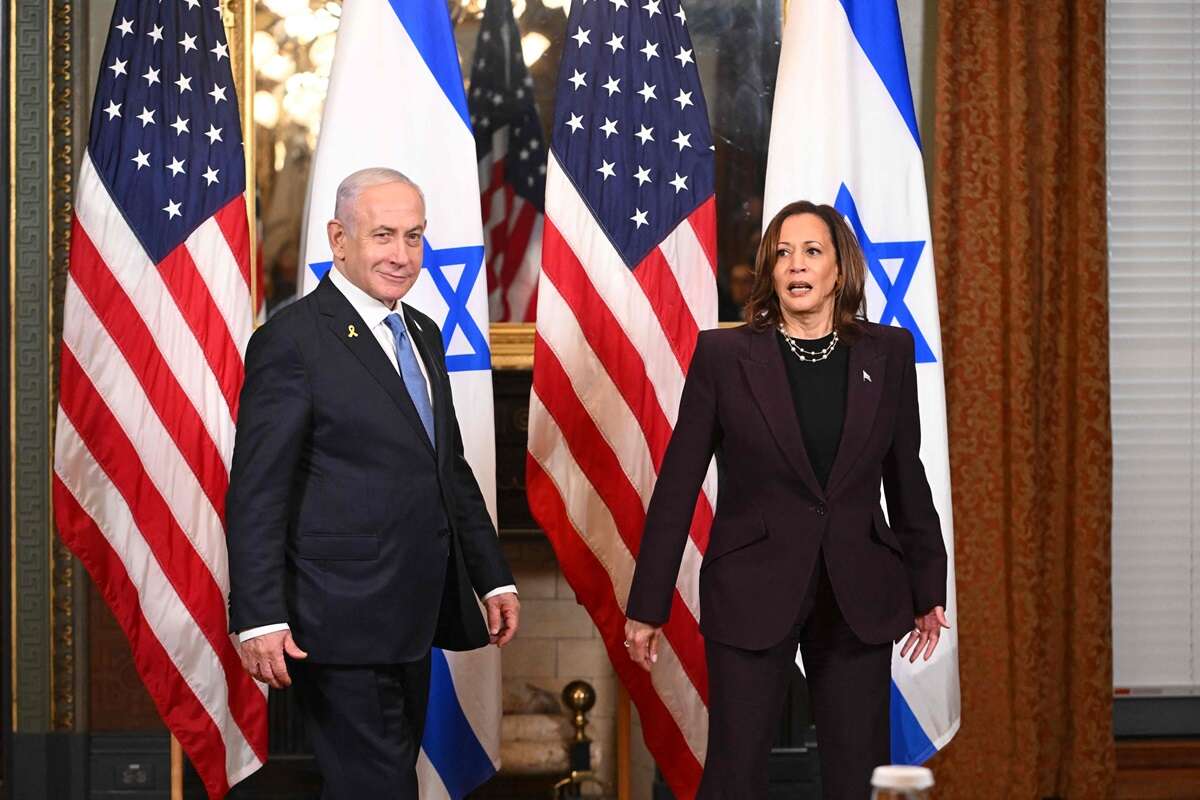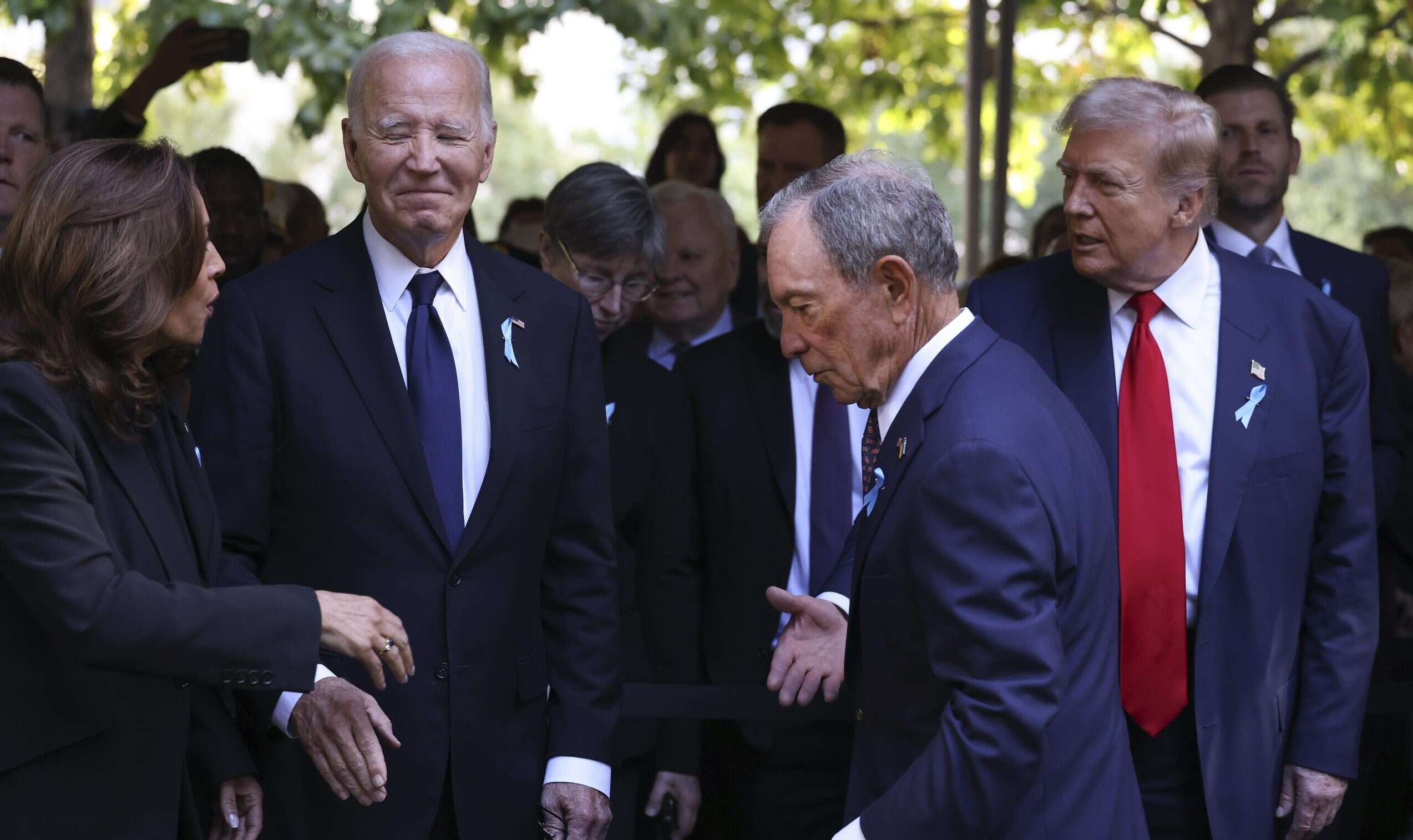With just a week until the US elections, there's one outcome that official Israel definitely doesn't want to see: a victory by Kamala Harris.
No one will say this publicly, of course – diplomatic protocols are upheld. But behind closed doors, the assumption is that if the Democratic nominee wins, four challenging years await the Jerusalem-Washington relationship. Harris is far from well-versed in understanding regional developments. As someone who identified Iran, rather than China or Russia, as America's toughest adversary, one might question her grasp of international affairs in general. Ironically, from Israel's perspective, it might be beneficial if, as president, she places such emphasis on Iran.
The Islamic Republic indeed has threatened the US and has attempted to carry out attacks on American soil. However, having someone in the Oval Office who lacks command of these issues should concern every global citizen – especially Israelis.

Furthermore, presidents are always influenced by their advisors. Regarding Israel, those surrounding Harris are viewed in Jerusalem as highly problematic. In diplomatic corridors, some believe Harris would halt the airlift that President Joe Biden has maintained since the war began. An even graver concern is that Harris might try to impose a genuine arms embargo on Israel. In such a case, only a Republican majority in the Senate could prevent it.
No one will say this publicly, of course – diplomatic protocols are upheld. But behind closed doors, the assumption is that if the Democratic nominee wins, four challenging years await the Jerusalem-Washington relationship.
These nightmare scenarios demonstrate just how worried Israeli leadership is about a potential Democratic nominee's victory. A reminder: Harris' meeting with Prime Minister Benjamin Netanyahu following his Congressional address passed without particular significance. However, immediately afterward, the vice president criticized Israel at a press conference, again speaking about the "dire humanitarian situation" in Gaza – a message she repeats almost daily. Israel was disappointed not only with the content but also with the disconnect between what was said in the meeting and what was stated publicly.

With such being the Democratic candidate's position, it's no wonder there is a hopeful gaze toward a Donald Trump victory. Unpredictable as he may be, the 45th president's starting point is far more favorable than his rival's. Trump is also surrounded by countless pro-Israel figures. In other words, his circles of influence are the complete opposite of Harris'. As president, he might demand Netanyahu end the war quickly. However, he would want an ending with an Israeli victory – as he has stated several times throughout the campaign – rather than a ceasefire that freezes the situation and helps Hamas, Hezbollah, and Iran, which the Biden administration has repeatedly tried to impose on Netanyahu throughout the war.
Window of Opportunity
Whether Trump or Harris wins, 75 days will pass between election day and the inauguration on the National Mall. Until January 20, 2025, Joe Biden remains president, and Netanyahu intends to use this period. The potential US-Saudi-Israel agreement still sits on the shelf. Washington, Riyadh, and Jerusalem all hope this transition period might allow its implementation.

Biden defines himself as "the most Zionist president" and often says that "you don't have to be Jewish to be a Zionist." Israel plans to embrace these statements and use them to secure the necessary Senate majority for the trilateral agreement. It's difficult, the chances aren't very high, but such a scenario isn't far-fetched.
Unpredictable as he may be, the 45th president's starting point is far more favorable than his rival's. Trump is also surrounded by countless pro-Israel figures. In other words, his circles of influence are the complete opposite of Harris'. As president, he might demand Netanyahu end the war quickly.
There's something else Biden might need to do. If Iran fulfills its threats to "avenge" Israel for Saturday's attack, the Israeli Air Force will again be sent far eastward. This time – at least according to the original plan – Israel won't settle for a limited and focused response but will use the opportunity to remove the Iranian nuclear threat. In other words, perhaps during his "lame duck" period in America, Biden will have the opportunity to fully realize his commitment to the Jewish state. Will he follow through?




